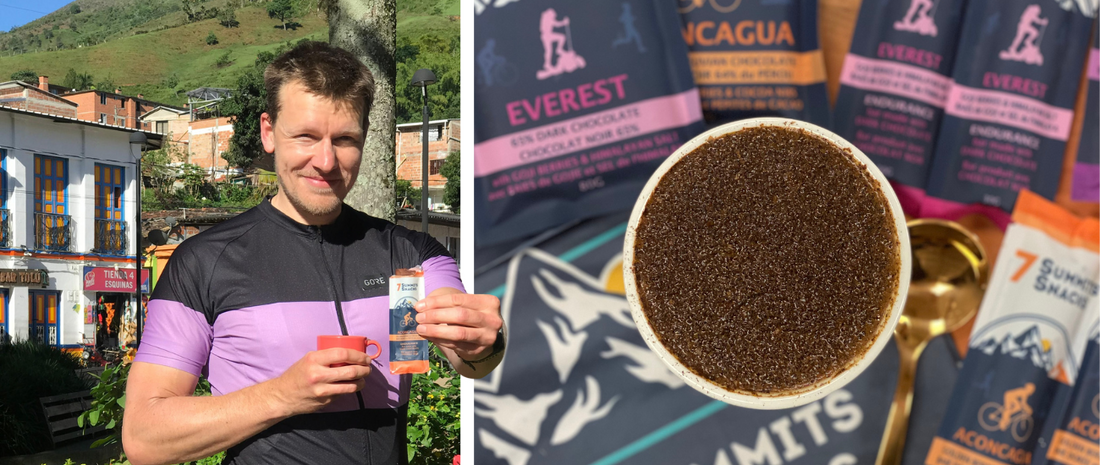
Caffeine in Sports Nutrition and Hydration
Share
Caffeine is one of the most widely used—and widely studied—ergogenic aids in sports nutrition. Found naturally in coffee, tea, and cocoa, and added to countless gels, drinks, gums, and pills, caffeine has become a staple for athletes looking to enhance focus, reduce fatigue, and improve performance. But what does the science actually say about caffeine’s role in sports? And how does it interact with hydration—a critical component of endurance and high-intensity performance?
How Caffeine Works in the Body
Caffeine is a central nervous system stimulant. Its primary mode of action is to block adenosine receptors in the brain, which delays fatigue and keeps you feeling alert. In athletic contexts, this translates to:
- Improved mental focus and reaction time
- Decreased perception of effort
- Delayed onset of fatigue
- Potential increases in endurance and high-intensity performance
Caffeine doesn’t provide energy in the same way carbohydrates do, but it can help athletes push harder for longer by making effort feel easier and enhancing neuromuscular function.
Caffeine and Endurance Performance
The most robust evidence for caffeine’s benefits is in endurance sports like long-distance running, cycling, and triathlon. Numerous studies show that doses of 3–6 mg of caffeine per kilogram of body weight can improve time trial performance, increase power output, and delay exhaustion.
Interestingly, lower doses (as little as 1–2 mg/kg) can still offer cognitive benefits such as heightened focus and alertness without some of the side effects (like jitteriness or GI distress) associated with higher doses.
Caffeine in Strength and High-Intensity Sports
While endurance athletes were early adopters of caffeine, there's growing evidence that caffeine can also benefit strength and power athletes, including weightlifters, sprinters, and team-sport players. Research suggests caffeine can:
- Increase maximal strength and muscle endurance
- Enhance sprint performance
- Improve jump height and explosive movements
However, the response to caffeine can be highly individual, depending on genetic factors, habitual use, and training status.
Forms of Caffeine in Sports Nutrition
Athletes now have a wide array of caffeine delivery systems to choose from, including:
- Chocolate – For a balanced and sustained energy source (combined with carbs and fats)
- Energy gels and chews – Often combined with carbohydrates
- Pre-workout powders – Typically higher doses and mixed with other stimulants
- Caffeinated sports drinks – Offer hydration and stimulation in one
- Caffeine pills – For precise dosing, though often harsher on the stomach
- Caffeinated gum and strips – Fast-acting absorption through the mouth
The choice of format often comes down to personal preference, tolerance, and timing within a training session or competition.
Caffeine and Hydration: Is There a Conflict?
One of the most enduring myths about caffeine is that it’s dehydrating. While caffeine is technically a mild diuretic, studies show that moderate doses do not significantly impact hydration status—especially when consumed during exercise, when fluid retention is higher.
In fact, many sports drinks now include low-to-moderate doses of caffeine (30–80 mg) per serving to offer performance benefits without compromising hydration. These can be particularly useful during long races or events where both energy and focus are crucial.
However, extremely high doses of caffeine, particularly in dry or hot environments, can increase heart rate, sweat rate, and perceived exertion, which may elevate fluid needs. As with any supplement, individual testing during training—not on race day—is key.
The ideal scenario, then, is to get caffeine's performance benefits without its potential drawbacks. This is best achieved by consuming it alongside other macronutrients. A low-caffeine source that incorporates stabilizing fats and complex carbs—like chocolate—smooths out the energy release, eliminates the jitters, and makes it easy to manage your intake intuitively throughout a long effort.
Risks, Side Effects, and Tolerance
While caffeine is generally safe for healthy adults when used appropriately, it’s not without its downsides:
- GI upset – Especially if taken in pill form or on an empty stomach
- Anxiety, jitteriness, and sleep disruption – Particularly at doses above 6 mg/kg
- Tolerance build-up – Regular caffeine users may experience reduced effects over time
- Withdrawal symptoms – Headaches and irritability are common when intake is abruptly stopped
Importantly, not all athletes are "responders". Genetic differences (especially in the CYP1A2 and ADORA2A genes) can determine how quickly you metabolize caffeine and how strongly you respond to it. Some may get significant boosts in performance; others may see no benefit or even perform worse.
Guidelines for Athletes Using Caffeine
To make the most of caffeine in your training or racing strategy:
- Start with a low dose (1–3 mg/kg) and test it during training.
- Time it right – Caffeine peaks in the bloodstream about 45–60 minutes after ingestion.
- Be cautious with back-to-back events – Accumulated caffeine can impair sleep and recovery.
- Avoid trying it for the first time on race day – Individual tolerance and GI reactions vary.
- Cycle off occasionally to reduce tolerance if you’re a regular user.
Conclusion
Caffeine is one of the most effective, accessible, and affordable performance enhancers in sports nutrition. Whether you're seeking improved endurance, sharper focus, or a boost in power output, caffeine can offer a legal and evidence-backed edge. Used intelligently—and with attention to your individual response—it can be a valuable part of your fuelling and hydration strategy.
However, as with all supplements, more is not always better. Personalization, practice, and precision are key to unlocking caffeine’s full potential without unwanted side effects.
So, how do you apply this? You choose a fuel source that builds this science into every bite. Our Endurance Energy Bars aren't just delicious chocolate—they're a precise energy tool. Offering the evidence-backed edge of caffeine, delivered at an optimal dose alongside other macronutrients to ensure stable energy and easy dosing. It’s personalization, practiced and precision, made simple.
Experience the smarter way to caffeinate. Try our Endurance Explorer Box today, and save 15% off your first purchase with code WELCOME15.




